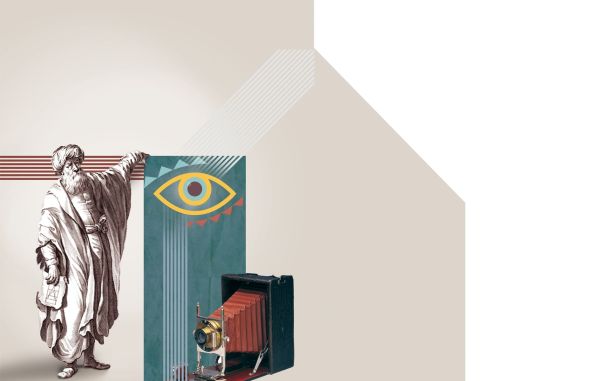Sama
Let the petals turn to wings
Watch it radiate in a celestial glow
Do you still wish it ill?
Watch it radiate in a celestial glow
Do you still wish it ill?
| Aleezeh Usman | Issue 144 (Nov - Dec 2021)
This article has been viewed 36120 times

Calm your raging eyes
Fuel not a hollow fire
Lower your accusing gaze
Point not at a whirling lily
Liberate the flower of sublimity
From the shackles of your enmity
Let it dance to a divine melody
Let it mix the blue into the green
Let it reach out to God
Let it feel the earth
Stab it not
With words of hostility
Let it love
With a heart of glory
Let the petals turn to wings
Watch it radiate in a celestial glow
Do you still wish it ill?
Do you still wish for it to wilt?
Can you not see in it
The infinite bounty
Of the Lord,
That turned a praying flower
Throwing itself at His mercy
To a symbol of love and peace
Soaring in the sky?
More Coverage
Science Square (Issue 144)
Climate change is the main cause of fires
Zhuang et al. Quantifying contributions of natural variability and anthropogenic forcings on increased fire weather risk over the western United States. Proceedings of the National Academy of Sciences. Nove…
Brain Development During Adolescence
Until recently, the human brain was thought to complete its development to a great extent when the child is 5 or 6 years old. This was mostly theoretical, for we did not have the technology to visualize the brain of a living person in order to obser…
Ibn al-Haytham’s Vision
He does not have a familiar name like Nicolaus Copernicus, Roger Bacon, or Galileo, but Ibn al-Haytham’s name is the reason that those aforementioned scientists carry the weight that they do today.
A product of the Islamic Golden Age, Ibn al-Haytha…
How to Respond to Oppression
Question: Oppression is everywhere and exists in almost every form. How should believers respond to oppression when they have to face it?
Oppression, at its most basic form, is a transgression of boundaries and a violation of others’ rights. Killi…









